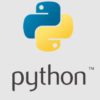Tag: python_interview
Increasing the dimensionality of an existing array along a specified axis without copying data using Python NumPy’s np.expand_dims
np.expand_dims is a versatile tool used to increase the dimensionality of an existing array along a specified axis without copying…
Flattening arrays, transforming multi-dimensional arrays into one-dimensional arrays without making a copy of the data using Python NumPy
np.ravel stands out as a handy function for transforming multi-dimensional arrays into one-dimensional arrays without making a copy of the…
Reshaping arrays for enhanced data manipulation using Python NumPy : np.reshape
np.reshape stands out as a versatile and essential tool for restructuring arrays to fit various data processing needs. What is…
Creating equally spaced arrays with precision using Python NumPy’s np.linspace
np.linspace is a NumPy function used to create an array of evenly spaced values within a specified range, with a…
Creating a 2D NumPy array representing a diagonal matrix with ones on the main diagonal and zeros elsewhere.
NumPy’s np.eye is a function used to create a 2D NumPy array representing a diagonal matrix with ones on the…
Working with configuration files in Python using configparser
Configuration files are a fundamental part of many software applications. They allow developers to store and manage various settings and…
Python Script to list Installed packages with installation dates
To find the last installed libraries in Python, you can use the pip tool, which is the package manager for…
Common Python Error: ‘bytes’ object has no attribute ‘encode’ – How to fix It
One of the errors that developers often encounter is the “AttributeError: ‘bytes’ object has no attribute ‘encode’” error. This error…
Over view of classification_report tool in machine learning
classification_report is a commonly used tool in machine learning for evaluating the performance of classification algorithms. It provides a detailed…
Python : Finding Keys in a Python dictionary with values greater than 100
In Python, dictionaries (often referred to as maps in other programming languages) are data structures that store key-value pairs. If…









